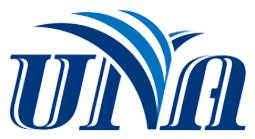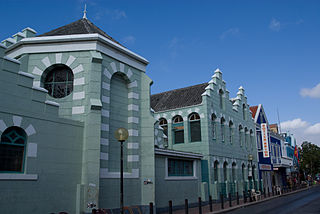 |
|---|
|
A status referendum was held on the island of Saba on 14 October 1994, alongside simultaneous referendums on Bonaire, Sint Eustatius and Sint Maarten. [1] A majority voted for maintaining the status quo.
 |
|---|
|
A status referendum was held on the island of Saba on 14 October 1994, alongside simultaneous referendums on Bonaire, Sint Eustatius and Sint Maarten. [1] A majority voted for maintaining the status quo.
| Choice | Votes | % |
|---|---|---|
| Status quo | 86.3 | |
| Autonomy | 9.6 | |
| Integration with the Netherlands | 3.6 | |
| Independence | 0.5 | |
| Invalid/blank votes | – | |
| Total | 100 | |
| Registered voters/turnout | ||
| Source: Direct Democracy | ||

The Netherlands Antilles, also known as the Dutch Antilles, was a constituent Caribbean country of the Kingdom of the Netherlands consisting of the islands of Saba, Sint Eustatius, and Sint Maarten in the Lesser Antilles, and Aruba, Curaçao, and Bonaire in the Leeward Antilles. The country came into being in 1954 as the autonomous successor of the Dutch colony of Curaçao and Dependencies, and it was dissolved in 2010, when like Aruba in 1986, Sint Maarten and Curaçao gained status of constituent countries within the Kingdom of the Netherlands, and Saba, Sint Eustatius, and Bonaire gained status of special municipality of Netherlands as the Caribbean Netherlands. The neighboring Dutch colony of Surinam in continental South America, did not become part of the Netherlands Antilles but became a separate autonomous country in 1954. All the territories that belonged to the Netherlands Antilles remain part of the kingdom today, although the legal status of each differs. As a group they are still commonly called the Dutch Caribbean, regardless of their legal status. People from this former territory continue to be called Antilleans in the Netherlands.

The flag of the Netherlands Antilles was white, with a horizontal blue stripe in the center, one-third of the flag's hoist, superimposed on a vertical red stripe of the same width, also centered; six white, five-pointed stars are arranged in a hexagon pattern in the center of the blue band, their points up. It was adopted on 19 November 1959.

The SSS islands, locally also known as the Windward Islands, is a collective term for the three territories of the Dutch Caribbean that are located within the Leeward Islands group of the Lesser Antilles in the Caribbean Sea. In order of population size, they are: Sint Maarten, Sint Eustatius, and Saba. In some contexts, the term is also used to refer to the entire island of Saint Martin, alongside Sint Eustatius and Saba.

.an was the Internet country code top-level domain (ccTLD) for the former Netherlands Antilles. It was administered by the University of the Netherlands Antilles. The domain was phased out after the Netherlands Antilles were dissolved in 2010. As of November 2010 the .an domain remained live with over 800 domains registered under .an, including secondary levels. On 31 July 2015, use of the domain was discontinued.
Elections in the Netherlands Antilles were held for two territorial levels of government: the state, and the island territories.

The Netherlands Antilles was an autonomous Caribbean country within the Kingdom of the Netherlands. It was dissolved on 10 October 2010.

The Catholic Church in the Caribbean part of the Kingdom of the Netherlands is part of the worldwide Roman Catholic Church, under the spiritual leadership of the Pope in Rome.
ISO 3166-2:AN was the entry for the Netherlands Antilles in ISO 3166-2, part of the ISO 3166 standard published by the International Organization for Standardization (ISO), which defines codes for the names of the principal subdivisions of all countries coded in ISO 3166-1.

The Caribbean Netherlands is a geographic region of the Netherlands located outside of Europe, in the Caribbean, consisting of three special municipalities. These are the islands of Bonaire, Sint Eustatius, and Saba, as they are also known in legislation, or the BES islands for short. The islands are officially classified as public bodies in the Netherlands and as overseas territories of the European Union; as such, European Union law does not automatically apply to them.

A common visa exists since the end of 2010 for the territories of Aruba, Curaçao, Sint Maarten and the Caribbean Netherlands which form together the territory of the Kingdom of the Netherlands in the Caribbean. The visa is not valid for the European part of the Netherlands, which is part of the Schengen Area.

A status referendum was held on the island of Sint Maarten on 22 June 2000.

A status referendum was held on the island of Curaçao on 8 April 2005. The option of becoming an autonomous area within the Kingdom of the Netherlands was approved by 68% of voters.
A status referendum was held on the island of Bonaire on 10 September 2004. A majority voted for integration into the Netherlands.
A status referendum was held on the island of Saba on 5 November 2004.
A status referendum was held on the island of Sint Eustatius on 8 April 2005.
.bq is designated—but not in use—as the Internet country code top-level domain (ccTLD) for Bonaire, Sint Eustatius and Saba following the assignment on December 15, 2010, by the ISO 3166 Maintenance Agency of BQ as the ISO 3166-1 alpha-2 to the area. This decision followed the dissolution of the Netherlands Antilles and new status of the Caribbean Netherlands as public bodies of the Netherlands on October 10, 2010.

The Dutch Caribbean are the New World territories, colonies, and countries of the Dutch Empire and the Kingdom of the Netherlands located in the Caribbean Sea, mainly the northern and southwestern regions of the Lesser Antilles archipelago.

A status referendum was held on the island of Sint Eustatius on 14 October 1994, alongside simultaneous referendums on Bonaire, Saba and Sint Maarten. A majority voted for maintaining the status quo.
Same-sex marriage has been legal in Bonaire, Sint Eustatius and Saba since 10 October 2012, the effective date of legislation passed by the States General of the Netherlands enabling same-sex couples to marry. The Caribbean Netherlands was the first jurisdiction in the Caribbean to legalise same-sex marriage, and was followed a few months later by French territories, including Guadeloupe and Martinique, in May 2013.
The Sint Eustatius national football team is the national association football team of the Caribbean island of Sint Eustatius. It is a not member of the Caribbean Football Union, CONCACAF, or FIFA and therefore cannot compete in tournaments sanctioned by these organizations. It is under the auspices of the Statia Football Association.